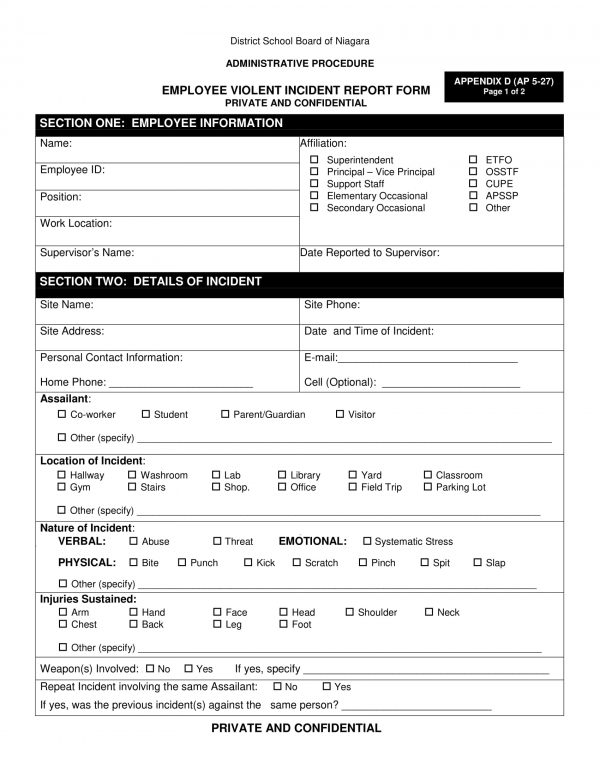Occasional Incident
Nuts & Bolts 'An Occasional Incident' |
Winona man shot to death during Smith County incident; suspect charged with murder By John Anderson janderson@tylerpaper.com. This is the list to receive occasional emails containing special.
Once an analytics rule generates a new incident, a new incident will pop-up on the ServiceNow incident Page. Close Sentinel Incident When it closed in ServiceNow. Closing the incident in Azure Sentinel when it is closed in ServiceNow requires two components: A Business Rule in ServiceNow that run custom JS code when the incident is closed. Happening or likely to happen in an unplanned or subordinate conjunction with something else. Incurred casually and in addition to the regular or main amount: incidental expenses. The best way to stop an AFib episode is to prevent one from happening in the first place. You can reduce your odds of having an AFib episode in two ways: maintaining good heart health and avoiding. Occasional definition, occurring or appearing at irregular or infrequent intervals; occurring now and then: an occasional headache.
One of the advantages of many electroniccameras is seeing your exposure mistakes in the viewfinder before you beginto make photographs. Alas, the poor film photographer has to wait untilthe film is processed to see mistakes. The auto exposure systems that dominatetoday's photography do a wonderful job - most of the time. But when theydonut - egg on the face and the desperate hope that the news event wasn'tan important one.
I know a number of news photographers thatstill rely on a handheld exposure meter, and these photographers use camerasthat provide the option of automatic exposure. They use a handheld incidentmeter, the meter whose cell is hidden behind half a Ping-Pong ball.
Unfortunately, the broad, full-frame metersbuilt into cameras will almost always be misled when the important subjectis a small part of the frame and a different brightness from the majorityof the frame. The tighter 'partial' and 'spot' meters correct this problembut require more intelligent use and interpretation of the built-in meter.The smaller the area covered by the reflected meter, the more you haveto know where to point it and how to modify its recommendations. If nothingelse, this takes time, time that may not be available to news photographers.
The incident exposure meter evolved inHollywood to solve problems just like this. Its hemispheric receptor mimickedthe face of the star and metered the light falling on that all-importantface while ignoring the background, the backlights and other factors thatwould affect a reflected-light meter. And unlike an uncompensated spotmeter that would render all flesh tones identical, the meter that justmeasured the light falling or 'incident' upon those valuable faces automaticallykept the fair heroine fair and the dark and dashing hero dark. Today, inspite of the advances in the reflected light meters built into cameras,the incident meter still remains the 'people meter' of choice for manyphotographers. Truth is, it's not only good for people, but a great varietyof nearby, three dimensional 'main subjects.'
The handheld incident meter will neverbe built into and coupled to a camera, but it is simple. Meter, set yourexposure, shoot until things change. Oddly enough, this 'set it and forgetit' attitude towards exposure can be faster for a series of pictures thananything short of blind automation. It is certainly faster than any systemthat requires that you meter and reframe with every shooting sequence.
It also offers one other hidden advantageover automatic TTL readings. Automatic systems may make subtle changesin exposure from frame to frame. This certainly is no problem if you areafter a single shot. It will drive you mad if you are looking for a seriesof matched shots. The values of each transparency can be slightly different.The printing time of each negative, slightly different.
If you are not used to incident metering,it has certain peculiarities that must be recognized. A ritualistic waveof the meter produces an exposure that is highlight and midtone oriented,perfect for color transparency and a disaster for negative film in contrastysituations with important shadow detail.
Once you are aware of this, the easiestand quickest correction is just to open up a stop in such situations.
Here's a more complicated and time consumingsystem that you can use if you are a metering fanatic working on a slowmoving feature job. Blocking the main light from the cell of the incidentmeter, take a 'shadow' reading. Split the difference between this exposurerecommendation and that of a conventional incident metering. Consideringthe latitude of today's films, this technique is probably absurd for journalists.But it looks weird and will probably impress the hell out of the otherphotographers.
The incident meter is not the be-all andend-all of metering. It's slower than automatic for a single, quick grabshot. The practitioners of the Zone System don't use one. And it can'treplace the built-in, TTL spot meter when you're covering a well-protectedpolitician from a distance. But it is an exceptionally valuable meter thatdoesn't get the free publicity that comes from being built into a nicecamera. (This also means you can have your meter in the repair shop withoutsending your camera, too.) Yet, because it provides a quick system of meteringthat is rarely fooled, it is still the 'main meter' for me and many ofmy friends.

Why write about it? I just met severalphotographers who thought the incident meter was only for studio strobelighting and relied totally on the TTL meter built into their cameras forany other situation. I thought it would be nice to talk about a handheldmeter in case they ever bought one of those big cameras that doesn't havea meter built-in.
Incident vs Accident
Difference between incident and accident is a topic worth looking into as incident and accident are often confused when it comes to their usage. The two words incident and accident have some interesting facts to offer. Accident is a noun while incident is used as a noun and an adjective. The origin of the word accident lies in Late Middle English while the origin of the word incident lies in Late Middle English too. Furthermore, the word accident is used in a number of phrases such as an accident waiting to happen, by accident, without accident, etc.
What does Incident mean?
The word incident is used to indicate ‘a happening or an event that takes place and which attracts the attention of people’. As a matter of fact, an incident does not involve the loss of human life or any casualty. Look at the following examples.
The incident attracted a large number of people.
She was very much ashamed about the incident her son created in the ball.
In the first sentence given above, the word incident gives the sense of a ‘happening that attracted a large number of people’. The happening might be a road-show or a ‘road-quarrel’. The second sentence also speaks about some kind of a happening that got the attention of many and possibly a very shameful one. On the other hand, the adverbial form of the word incident is incidentally.
What does Accident mean?
On the other hand, the word accident is used to express ‘a happening or an event that takes place all of a sudden’. Unlike an incident, an accident usually involves the loss of human life or casualty. This is the main difference between the two words. An accident is a happening that attracts a crowd too like an incident. Sometimes the word accident also refers to a happening that takes place unexpectedly as in the sentence given below.
Last night I met my friend by accident.
In this sentence, you can find that a person met his friend unexpectedly.
Observe the sentences given below:

The accident took away 25 lives.
She was in a coma for three months after the accident.
In the first sentence given above, the word accident gives the sense of a ‘happening that took away many lives’. It possibly refers to a gory road accident. If you look at the second sentence, it too speaks of some kind of an accident that made the victim a coma patient. It is important to know that the word accident is used in the formation of phrases such as ‘by accident’ and the like. The adverbial form of the word is accidentally.

What is the difference between Incident and Accident?

• The word incident is used to indicate ‘a happening or an event that takes place and which attracts the attention of people’. On the other hand, the word accident is used to express ‘a happening or an event that takes place all of a sudden’.
• As a matter of fact, an incident does not involve the loss of human life or any casualty.
• On the other hand, an accident usually involves the loss of human life or casualty. This is the main difference between the two words.
• Sometimes the word accident also refers to a happening that takes place unexpectedly.
• An accident is a happening that attracts a crowd too like an incident.
• The word accident is used in the formation of phrases such as ‘by accident’ and the like.
• The adverbial form of incident is incidentally while the adverbial form for accident is accidentally.
These are the main differences between the two words accident and incident.



